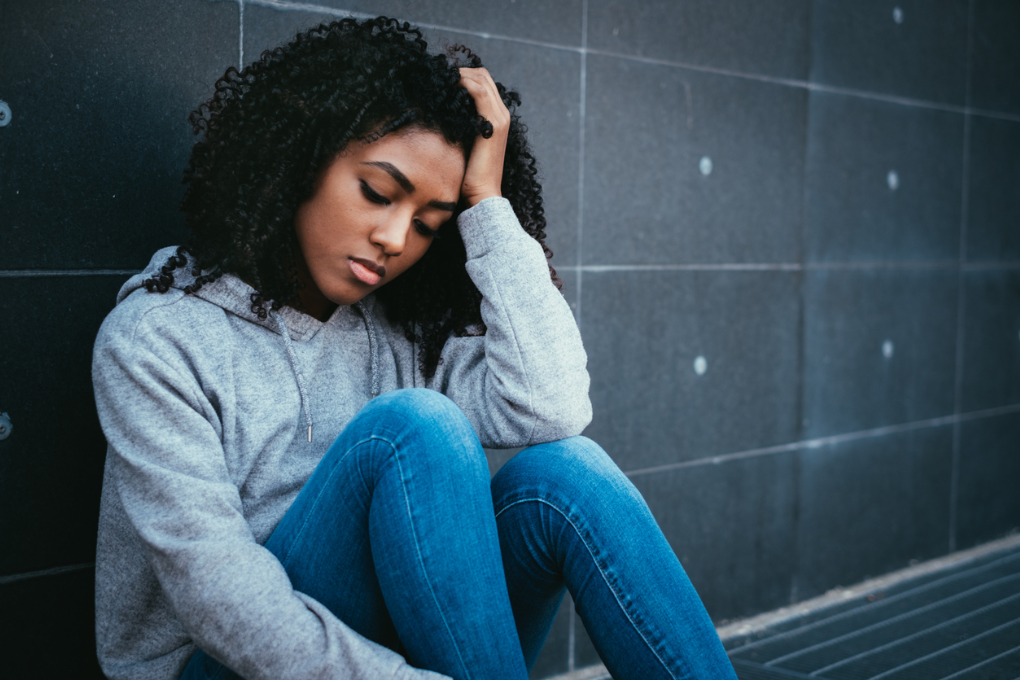The COVID-19 pandemic has had an adverse effect on people’s mental health, especially those of color. During the pandemic, many have experienced stress, anxiety, fear, sadness, and loneliness. Mental health disorders, including anxiety and depression, have worsened. Analysis shows a significant increase in the number of American adults who report stress, anxiety, and depression during the pandemic, compared with analysis before the pandemic. The use of alcohol or drugs also increased for some to cope with their fears about the pandemic. In fact, the opposite occurs. Using these substances can worsen anxiety and depression.
The virus’s impact has affected many, but African Americans have suffered disproportionately. Despite effective treatments, there are disparities in the availability, accessibility, and quality of mental health services for racial and ethnic minorities. Too often, people of color are ready to seek and find help, only to be met with barriers. It is like trying to unlock a door that will not open.
Some of the more common barriers to treatments that African Americans and minorities face are:
- The stigma associated with mental illness and its treatments,
- Side effects of medication treatment.
- Lack of adequate health insurance coverage or affordability.
- The mental health system highly favors non-minority values and cultural norms, i.e., Racism, bias, and discrimination in treatment settings.
Given the racial disparity with the COVID-19 virus each stage presents a greater secondary psychological risk for African Americans. African American’s are three times more likely than whites to become ill from COVID-19. This can cause distress on one’s mental health. The National Institutes of Health (NIH) stated that when the COVID-19 virus mortality rate for African Americans is accompanied by disproportionately higher economic, health-related, and other stressors, this further increases African American’s adverse psychological responses to COVID-19.
An extraordinary 60% of American adults, and almost half of children ages 8–15, receive no treatment for their mental illness diagnoses through valid therapies.
Physical Activity a Valid Treatment?
Many have researched and validated physical activity for treating various mental health conditions, such as grief, anxiety, eating disorders, bipolar disorders, schizophrenia, addictions, depression, relationship problems, dementia, and personality disorders. Additionally, exercise mitigates such conditions, stress, chronic pain, and chronic illnesses that contribute to bad moods.
When done appropriately (given a doctor’s approval), exercise is safe and free from negative stigma. For some mild-to-moderate conditions, exercise can be used as a stand-alone treatment or, more effectively, in conjunction with other mental health treatments. (talk with your health care provider first)
 Comparable to medicine in the treatment of mental illness, exercise can increase serotonin levels, dopamine, and norepinephrine in the brain. It improves and normalizes neurotransmitter levels, which ultimately helps us feel mentally healthy. Other vital benefits include:
Comparable to medicine in the treatment of mental illness, exercise can increase serotonin levels, dopamine, and norepinephrine in the brain. It improves and normalizes neurotransmitter levels, which ultimately helps us feel mentally healthy. Other vital benefits include:
- Enhanced mood and energy.
- Reduced stress.
- More profound relaxation.
- Improved mental clarity, learning, insight, memory, and cognitive functioning.
- Enhanced intuition, creativity, assertiveness, and enthusiasm for life.
- Improved social health and relationships, higher self-esteem, and increased spiritual connection.
Physical activity may include walking or running. Taking Pilates, Yoga, resistance training, or Spin classes; the health benefits are plentiful. Regular physical activity can result in weight loss, better sleep, reduced cholesterol, and improved cardiovascular fitness. Exercise is beneficial at all ages and stages. Promoting a vision of health and wellness by exercising for mental health for the rest of our lives; can help overcome mental illness.
The long-term mental health crisis, which has worsened due to the COVID-19 pandemic, has been facing America for some time. Living with a mental illness is a reality and affects millions of Americans each year. Use this month to focus on the healing value of connecting in safe ways, prioritizing mental health, and acknowledging that it is okay not to be okay.
As the weather warms up and people return outdoors, it is a great time to reap the benefits of exercise and improve one’s mental health.
The month of May is the national movement-Mental Health Awareness Month. Check out your local NAMI (National Alliance on Mental Health) chapter and here in Chicago, Coffee, Hip Hop, and Mental Health. A local support group whose mission is to normalize therapy, change culture and community by meeting the needs of the people. They provide support, educate the public, advocate for policies, and host physical activities such as walks and runs this month to help bring awareness and end the stigma.
Shera Strange is a certified health coach and fitness professional. Find her on social media @StrangeFitness.



